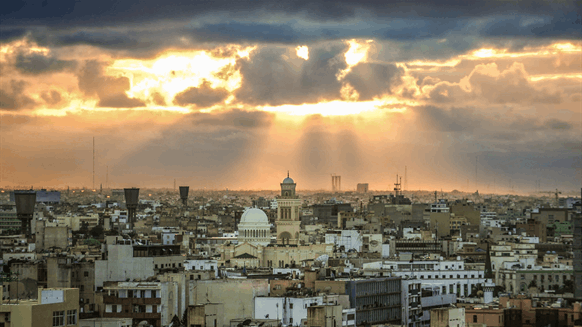Oil and gas production will remain a key component of Libya’s economy for the “foreseeable future,” an International Monetary Fund (IMF) mission recently said, predicting an increase of about 15 percent in the hydrocarbon production this year, but warning of a global risk. race to reduce carbon emissions.
“Hydrocarbon production is forecast to grow by about 15 percent in 2023 following an increase in oil production from 1 million barrels per day in 2022 to about 1.2 million barrels per day in 2023, and will gradually increase thereafter,” the IMF said in a statement.
“Looking ahead, assuming fiscal spending remains contained, the baseline projection is for a gradual decline in fiscal and external surpluses over the coming years. The key risks to the outlook are lower oil prices due to ‘global growth lower than expected, and new conflict and/or social unrest leading to disruptions in oil production’.
The Washington-based lender also warned about continued economic dependence on oil and called for a “clear economic vision” for the North African nation.
Oil accounted for $22.19 billion (LYD 105.5 billion) or about 78.5 percent of Libya’s total public revenue of $28.27 billion (LYD 134.4 billion) last year, according to the Central Bank of Libya The oil figure excluded $2.86 billion (LYD 13.6 billion) in royalties.
Tax revenue contributed $294.44 million (LYD 1.4 billion). Excluding revenue from financial services controllers and taxes, telecommunications was the second largest sector in terms of contribution to government revenue in 2022 with a share of $111.26 billion (LYD 529 billion), according to the official data
Of the country’s total public revenue of $22.21 billion (LYD 105.62 billion) in 2021, $21.74 billion (LYD 103.3689 billion) came from oil, according to data from the national bank.
“The speed with which the international community is mobilizing to reduce carbon emissions and recent leaps in clean energy technology pose a risk of disorderly adjustment for oil-dependent economies,” the statement said. “Libya risks falling behind these important global trends.”
“Looking ahead, Libya faces the daunting challenge of reducing its dependence on hydrocarbons while fostering growth driven by a stronger and more inclusive private sector. Structural reform efforts should focus on strengthening institutions and developing a more determined and transparent economic strategy for the future. This would be an opportunity to rally the population behind a clear plan to optimize the use of oil revenues to achieve economic diversification and improve living standards and inclusion.”
On a positive note, the IMF mission noted that despite “exceptional fluctuations in oil production and revenues since 2011,” central bank measures such as the downward adjustment in the value of the dinar “they helped maintain a large stock of international reserves.”
Recontracting with the IMF
Missions are conducted as part of periodic (usually annual) consultations under Article IV of the IMF’s Statute, in the context of a request for the use of IMF resources ( IMF loan), as part of staff-monitored program discussions, or as part of other services to monitor economic developments, the IMF notes on its site. The IMF mission held discussions for the 2023 Article IV consultation for Libya in Tunis, Tunisia, from March 11 to 17.
The IMF said in its recent statement that it welcomed the opportunity to re-engage with Libya through an Article IV consultation “after a decade-long hiatus”.
“The fragmentation of the country following the fall of the Ghaddafi regime in 2011 effectively halted the production of key economic indicators and complicated policymaking, making it difficult to conduct Article IV consultations “, adds the statement.
“The authorities have recently made commendable progress towards improving data collection, sharing and transparency. Together with the flexibility offered by the IMF’s new Fragile and Conflict-Affected States (FCS) strategy , this has paved the way for the resumption of Article IV consultations”.
To contact the author, please send an email jov.onsat@gmail.com
Photo credit: iStock.com/batuhanozdel


